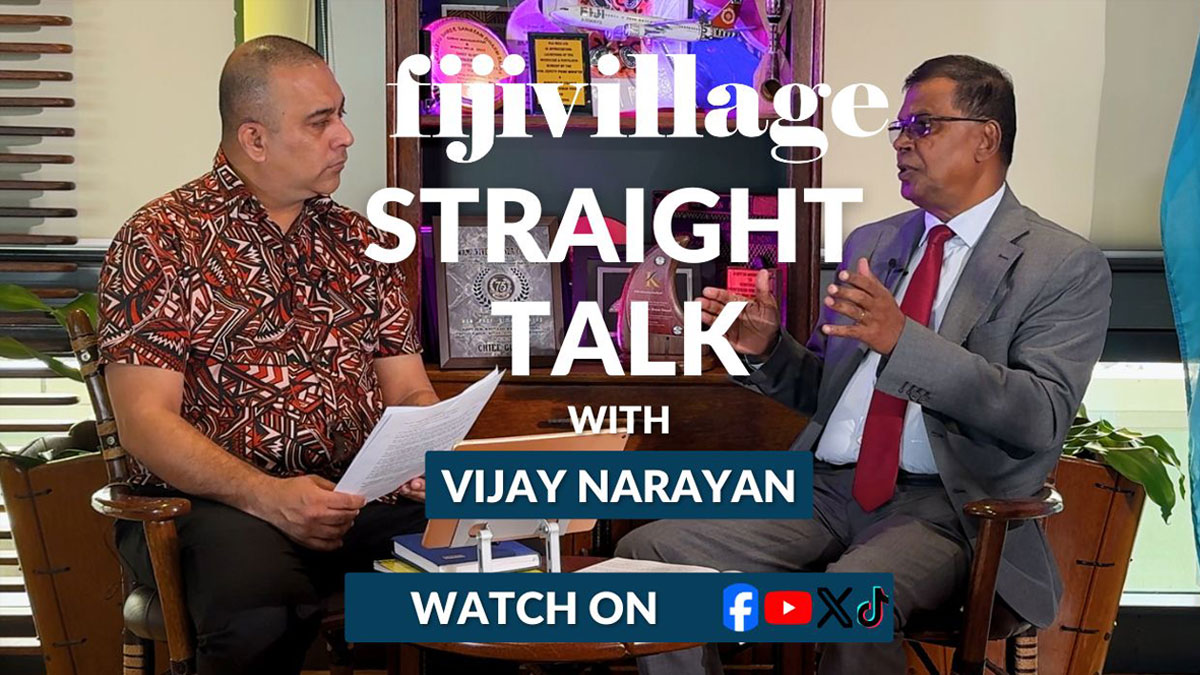
The Media Industry Development Act has been repealed in parliament.
29 parliamentarians voted for the Act to be repealed, 21 voted against it while 3 did not vote.
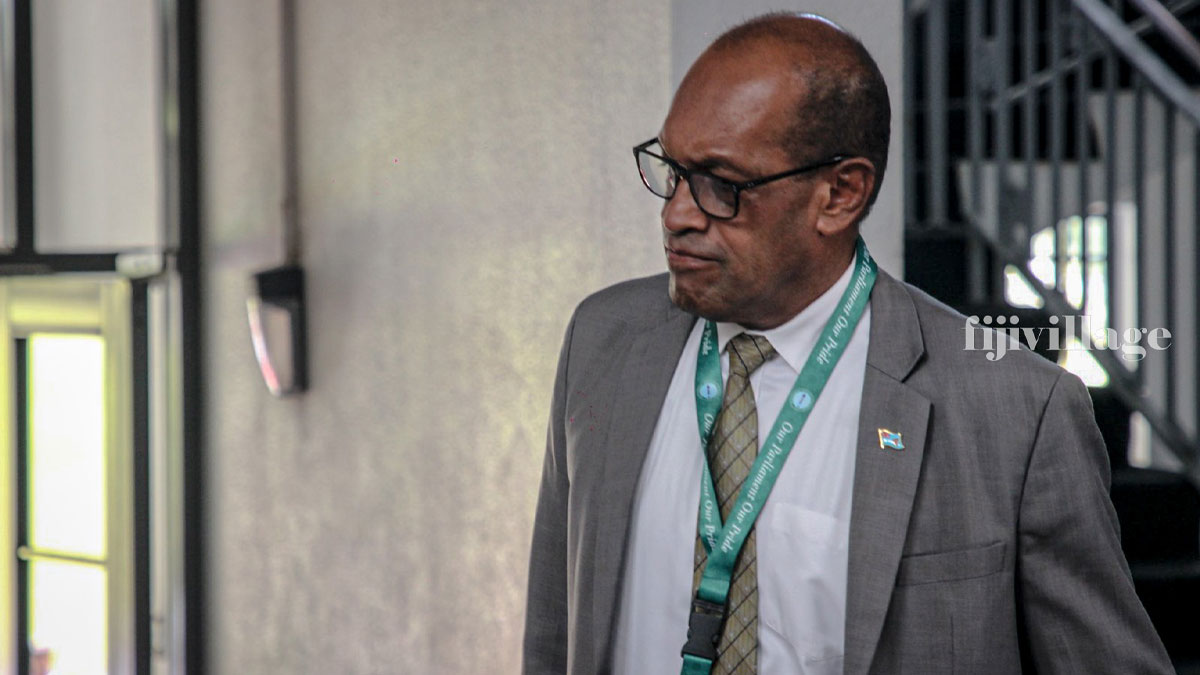
FijiFirst MP Jone Usamate, says they opposed the repealing of the Media Industry Development Act for the protections that were in the Act such as protection of children, cross media and foreign ownership.
Usamate says their concern is if you throw the whole Act what happens to the other protections.
When asked on the government saying that freedom of expression was suppressed, Usamate says they always say that.
When asked if the media should be controlled, Usamate says the media should be regulated fairly.
When questioned if they will be more open to media compared to before as they were not responding to a lot of media questions, Usamate says they want their viewpoint to come into the media.
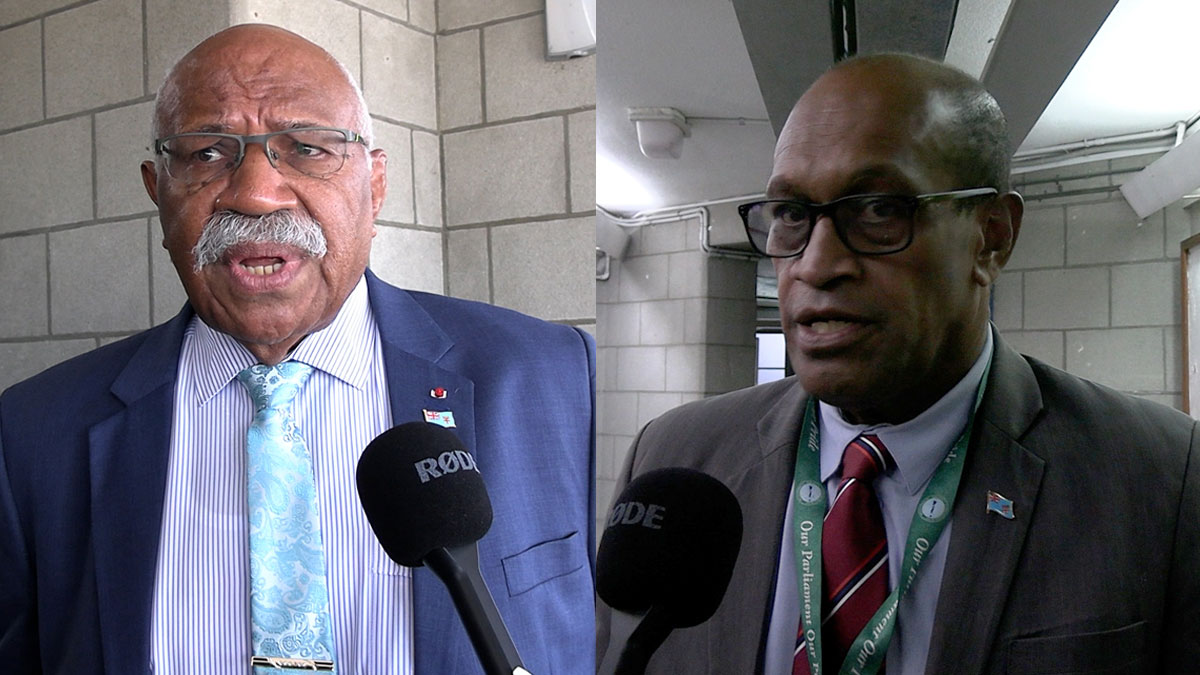
Prime Minister Sitiveni Rabuka says the repealing of the Media Industry Development Act is also a win for the opposition.
While speaking after the Act was repealed today, Rabuka says the opposition will have freedom of expression.
When asked if the media should be controlled, FijiFirst MP, Jone Usamate says the media should be regulated.
When questioned if they will be more open to media compared to before as they were not responding to a lot of media questions, Usamate says they want their viewpoint to come into the media.
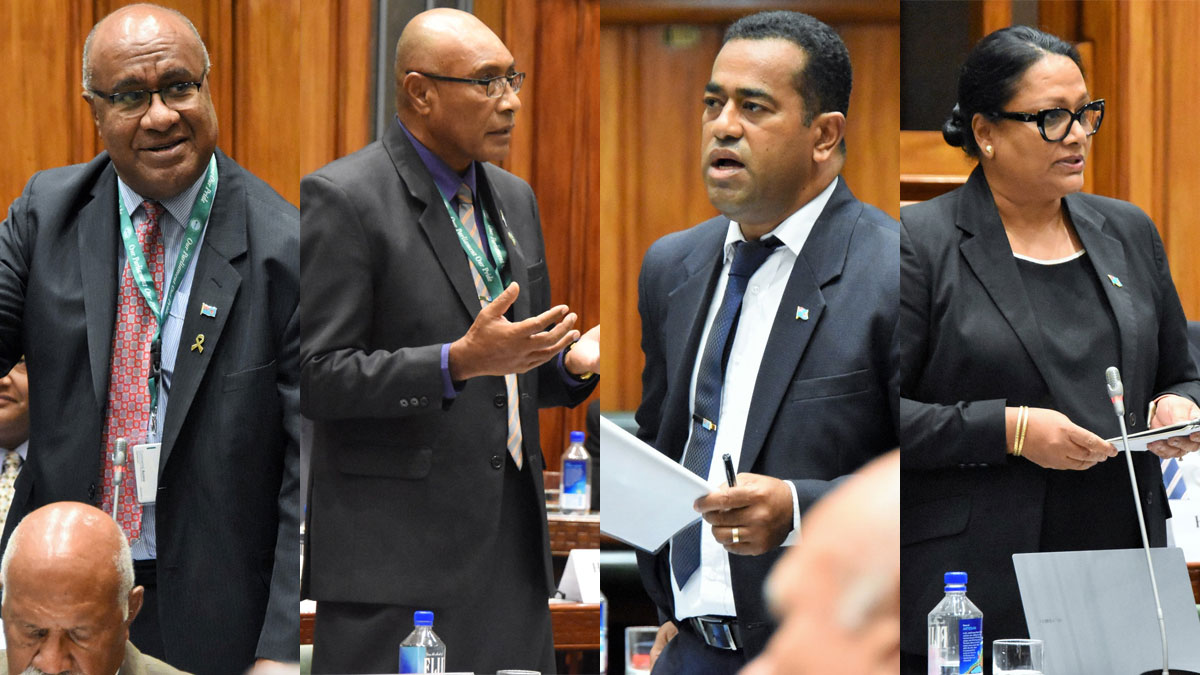
There was heated debate in parliament on the repealing of the Media Industry Development Act as government highlighted that the draconian law was brought in without proper consultation and it impedes on democracy while the Opposition says that the rights of people are not protected if the Media Act is repealed.
Deputy Prime Minister and Minister for Communications Manoa Kamikamica says this is a new day in Fiji because they are going to repeal two Acts in Parliament that has no place in a democracy.
Kamikamica says 91 percent of the Acts that went through the previous Parliament were under Parliamentary Standing Orders 51 and its a shame.
He urges the Opposition who are opposing the repeal of the Act to listen to what the public has been saying.
An emotional Kamikamica also quoted in Parliament a letter from the Fijian Media Association that says the MIDA Act is the worst thing to have happened to freedom of the media in Fiji.
He continued to say the origins of the MIDA Act began after the 2006 coup that brought a reign of terror, violence, intimidation, censorship, and fear to the country's media industry and journalists were beaten, detained, and threatened, their media businesses burned, offices trashed, and houses firebombed.
Kamikamica says media workers that were attacked in some way included Pita Ligaiula, Dionisia Turagabeci, Anish Chand, Merana Kitione, Leone Cabenatabua, Maika Bolatiki, Netani Rika, Sophie Foster, Imraz Iqbal, Samisoni Pareti, Apisalome Coka, Maikeli Radua, the late Sitiveni Moce…among many others.
He adds Government advertising was taken away from media organisations the government did not like and senior journalists and editors were forced out of their jobs.
He further says a public emergency regulation in 2009 enforced unprecedented and dictatorial censorship, and government officers entered newsrooms to force journalists to only report what the government wanted.
The Deputy Prime Minister says the censorship then morphed into the 2010 Media decree and then the MIDA Act which has caused uncertainty, stress, mental anguish, and threatened the survival and livelihoods of many media businesses.
He adds some of Fiji's best journalists left the industry as a result and the media still carry the mental scars today from that very disturbing period.
Kamikamica says neither the previous government nor a single member of the public has ever used the MIDA Tribunal to complain about the media, and there has been no media development under MIDA and it was a useless, but dangerous and vindictive piece of legislation for the industry.
The Minister says the repeal of the MIDA Act has long been a unifying demand of all media organizations in Fiji and no government, including this Peoples Coalition government should ever be given such power over the media.
He adds we need to return to the media freedom Fiji enjoyed and was renowned for prior to 2006 and the MIDA experiment is over and the draconian legislation now belongs in the dustbins of history.
FijiFirst MP Viliame Naupoto says the media is not any other business because the media has the ability to influence the public and too much influence from the media damages democracy.
While opposing the motion to repeal the Media Act, Naupoto says when we put some regulation on the media, we balance the freedom of expression against vilification.
Minister for Lands and Mineral Resources Filimoni Vosarogo says the Media Act did not advance media freedom; it curtailed it and it did not let them publish anything that is against national interest.
Vosarogo says publishing of offensive material is not only covered under the Media Act but it is also covered under the Crimes Act so there are alternatives that authorities are able to act on and to protect the vulnerable, particularly the children.
The Minister says with their own watchdog at the helm of the Media Industry Development Authority, he did nothing to develop the industry and kept all the media outlets in check to not insult the government of the day in anything that they print or say.
Vosarogo says the return of the fourth estate will ensure that government is kept in check in its role and to obverse the separation of power, its doctrines and its intents.
He says since December 2006, media freedom in Fiji has taken downward turn towards darkness and oblivion and the government began favouring the Fiji Sun and FBC in government jobs, senior journalists were forced out of their jobs and media houses began publishing very lightly on things that matters which may in fact tarnish the governments image.
He says today they return Fiji to the light, freedom of the media kind of light.
Opposition MP Premila Kumar claimed the media all over the world always pushes the boundaries of unethical conduct to get views and sales, and to remove the Act is to leave the media unregulated and thus remove protection of vulnerable Fijians from being featured on media with often misleading and fake content.
She says the Media Act which has now been repealed provides the regulatory framework for the media industry to ensure that such services in Fiji are maintained and a high standard that ultimately serve consumers who are the ultimate end users of the media industry.
Kumar adds absolute media freedoms in any jurisdiction is rare and even impossible and often there is compromise between absolute media freedom and absolute control by the government.
She says in the past there was a self regulated Fiji Media Council made up of media representatives to handle complaints and hold the media accountable and claimed the Council was not independent.
The Media Act is repealed.
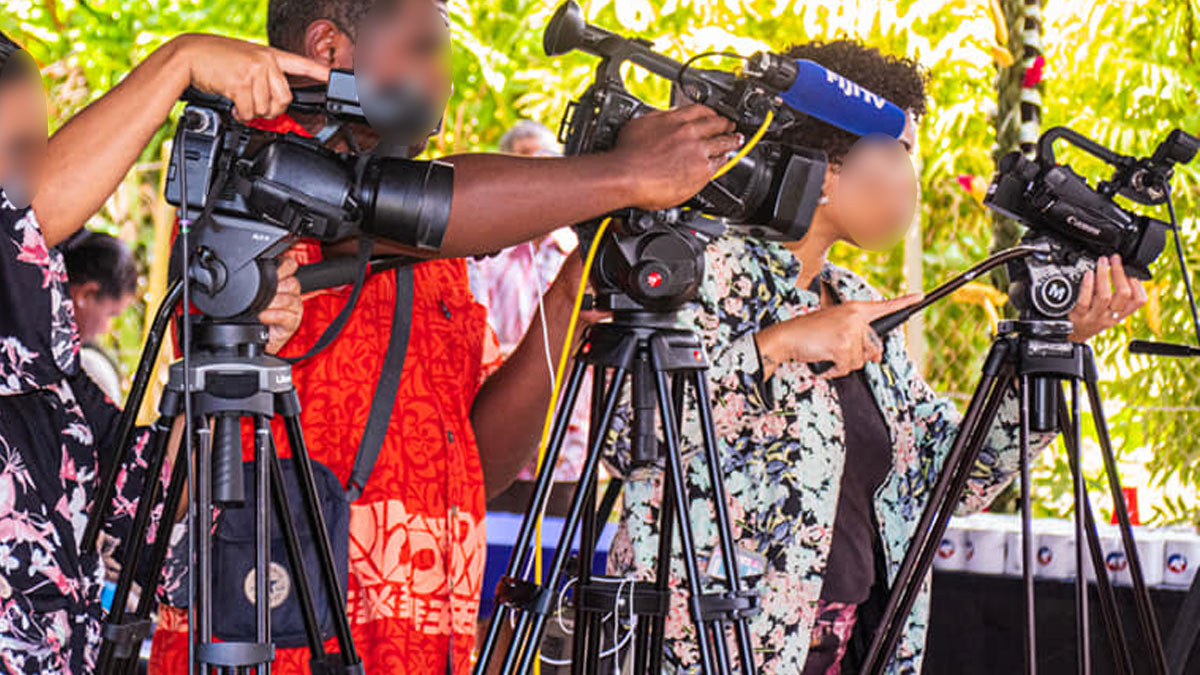
The Media Industry Development Act has been repealed in parliament.
29 parliamentarians voted for the Act to be repealed, 21 voted against it while 3 did not vote.
While speaking in support of the bill to repeal the Act, Attorney General Siromi Turaga says the Media Industry and by extension the dissemination of vital and relevant information to the public must be carried out in an environment where there is no fear of the unknown.
Turaga says even if the information is contrary to the policies and aspirations of the government of the day, the media rights must be observed.
He adds the Act does not and has not served any practical purposes other than to unnecessarily limit media organisations in their operation and freedom of expression.
He says moving forward the Media will regulate itself with the setting of the Fiji Media Council.
Turaga highlighted that on the issue of the Act hindering the growth and development of a robust media industry in Fiji, the Multinational Observer Group in its final report stated that they spoke to a range of media organisations that said they were committed to reporting the news as they saw it.
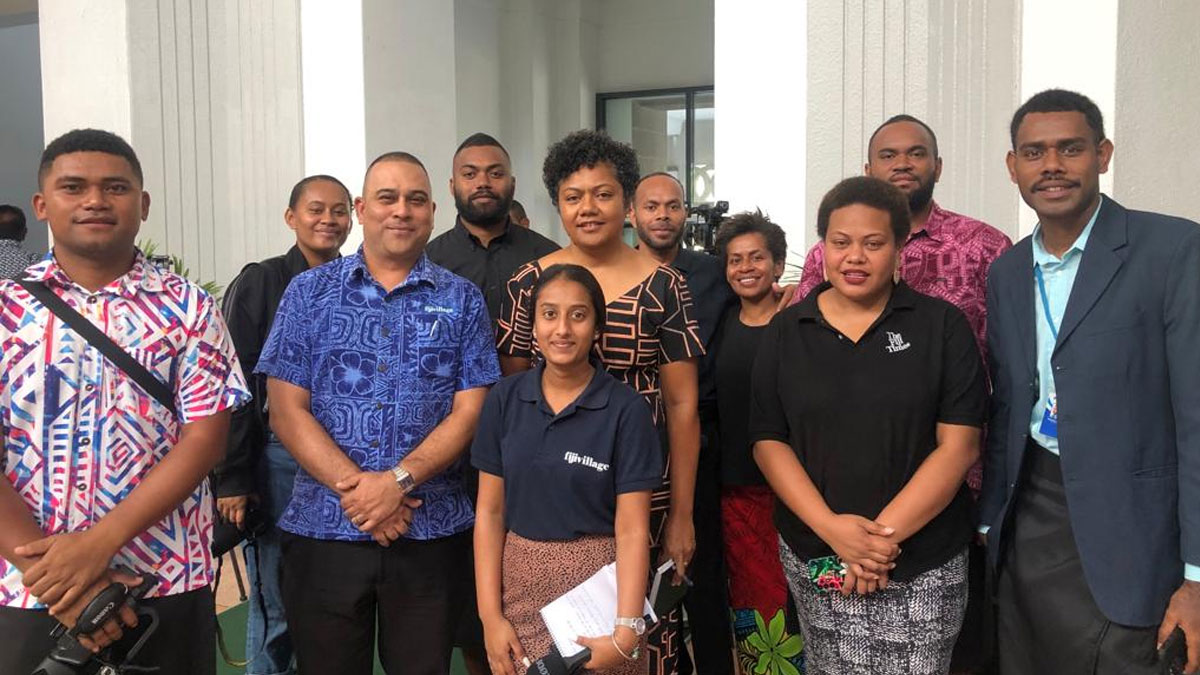
Turaga says however, they were advised that there was a culture of self-censorship especially among younger journalists.
The Attorney General says they say most media sources advised that the potential for - and severity of - penalties under the MIDA Act was a cause of significant concern.
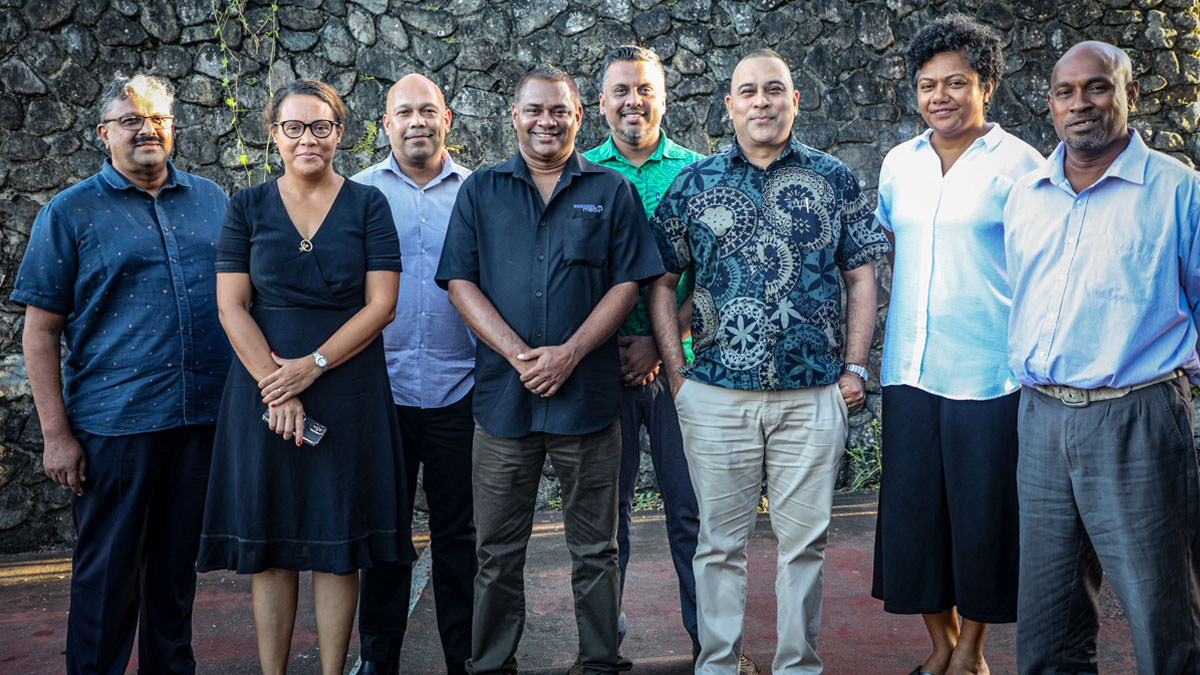
As debate on the Bill to repeal the Media Act is expected to be held in parliament this morning, representatives of the Fijian media have commenced work to revive the Fiji Media Council that was last operational prior to the promulgation of the 2010 Media Industry Development Authority Decree.
The Fiji Media Council is a body made up of national media, government, and community representatives to handle complaints and media standards.
The Council say they are guided by the industry Code of Ethics that sets out the guidelines and standards that every publisher and broadcaster has agreed to abide by.
The objectives of the Media Council are to promote high journalistic standards, to safeguard the media’s independence, to uphold freedom of speech and expression, to uphold public’s right to be informed accurately and fairly, to promote an independent and effective Complaints Committee and to promote a Code of Ethics and Practice for journalists and media organisations.
They say media leaders are committed to rebuilding a council that is relevant, responsible and proactive to public concerns and complaints.
The Council adds details of the complaints process and procedures and the make up of the Media Council will be announced shortly.

The Multinational Observer Group for the 2022 General Elections has noted that despite a relatively robust industry, many media stakeholders expressed to them that the environment in 2022 was more restrictive than in 2018.
In their final report, the MOG says stakeholders said that this had led to a culture of self-censorship amongst journalists due to the severe consequences of statutory default.
It says stakeholders also noted the onerous requirements for publishing opinion polls, which resulted in no polls being published since legislation was introduced on the subject in August 2022.
The MOG observed that reports from stakeholders of a more restricted media environment are consistent with Fiji’s recent decline in the Reporters Without Borders World Press Freedom Index.
Fiji was ranked 57 out of 180 countries for press freedoms in 2018 but fell to 102 in 2022 – its lowest ranking since 2014 and making it the lowest ranked Pacific country. The MOG spoke to a range of media organisations that said they were committed to reporting the news as they saw it.
However, they were advised that there was a culture of self-censorship especially among younger journalists.
The say most media sources advised that the potential for - and severity of - penalties under the MIDA Act was a cause of significant concern.
This was despite the fact that it was widely acknowledged that MIDA is effectively non-operational and some of its elections related functions have been effectively taken over by the Supervisor of Elections.
The MOG heard from a range of media organisations that uncertainty and confusion about the application of the legal framework impacted on their willingness to report on some issues.
They recommended to review the Media Industry Development Authority of Fiji’s mandate and operations and relevant procedures to create greater certainty and clarity for media organisations.
They have said to review the operation of media blackout requirement in the law and provide greater clarity through published guidelines.
The MOG has also recommended to review the appropriateness of the Electoral Guidelines guidelines on the conduct of opinion polls and their effective constraint on the media’s ability to contribute to public discourse and political accountability.
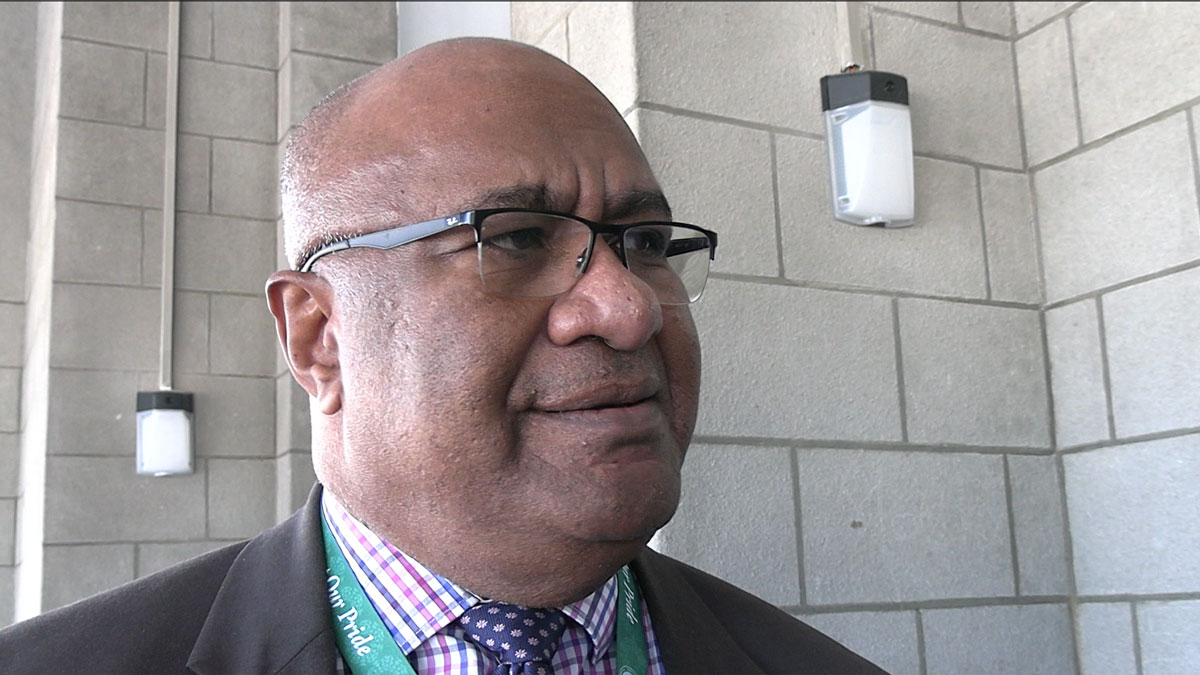
Deputy Prime Minister and Minister for Communications Manoa Kamikamica says they have to allow for media freedom and trust the media to do the right thing.
While speaking after the Media Act was repealed, Kamikamica says democracy has returned to Fiji.
Kamikamica says the media in Fiji have already begun to form the Media Council.
The Deputy PM says one of the beauties of democracy is that if you trust people, they will do the right thing.
When questioned on the opposition opposing the bill to repeal the Act and his message to the people, Kamikamica says the opposition has not really understood the fundamental part of a democracy.
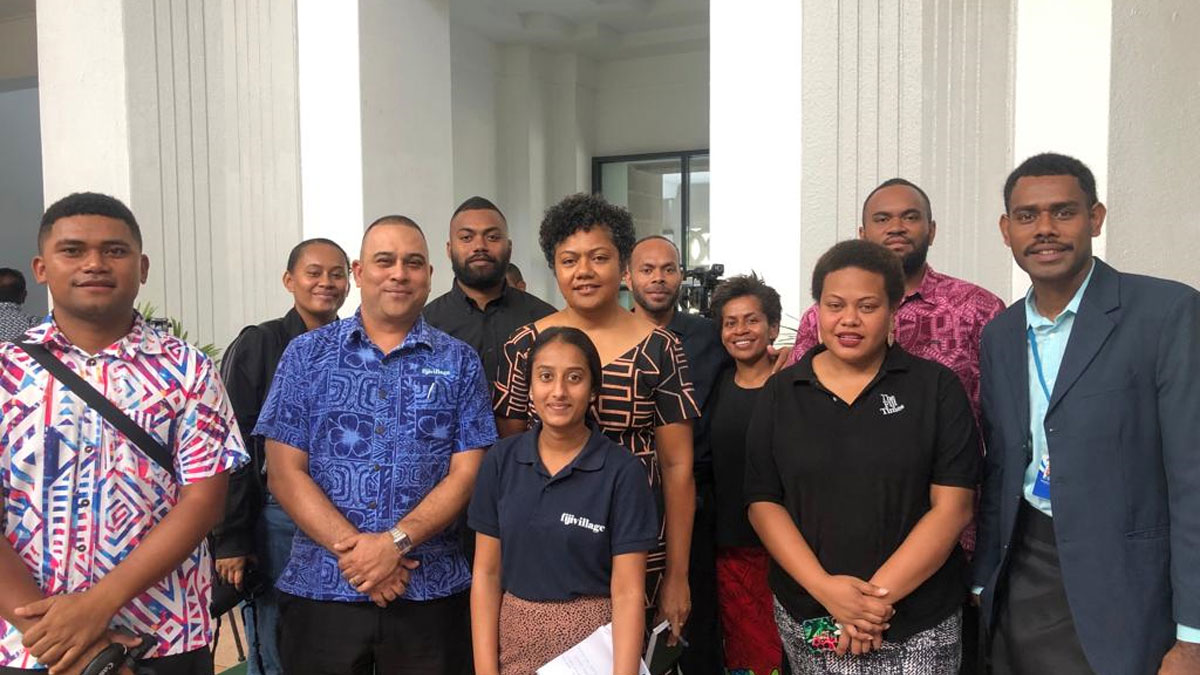
The Fijian Media Association which includes all media organizations are elated after the repeal of the Media Industry Development Act 2010.
Association President Rosi Doviverata says the MIDA repeal is a good opportunity for newsrooms and journalists to look at the development of their journalism skills and to push the boundaries in some of the types of journalism that they do especially investigative and solutions journalism.
She says looking at the makeup of the newsroom, 50 percent of journalists are women, and the Association has also started a Women In Media arm.
Fijian Media Association Executive and Communications Fiji Limited News Director, Vijay Narayan says this repeal is a great step forward as far as democracy is concerned for a strong and independent media.
He says the Media Decree came with no consultation and parliamentary debate which had limited the media growth and development.
The News Director says this has also hurt the journalists and the editors personally and professionally.
Narayan says the repeal will now help them to do their work well with passion, integrity and honesty as it comes with the responsibility of the Media Code of Ethics which is in practice already.
He further says the Fijian Media Association has also set up mechanisms in place for fair, balanced, and accurate reporting without any fear or favour.
When questioned about the opposition saying that the repealing of the act can bring about discrimination against women and children, Narayan says this is misleading and a slap in the face of our local media.
He says the Media Code of Ethics is in place and the media cannot just report on anything and everything.
Narayan says people know it has to be based on accuracy, balance and fairness.

Prime Minister Sitiveni Rabuka says the repealing of the Media Industry Development Act is also a win for the opposition.
While speaking after the Act was repealed today, Rabuka says the opposition will have freedom of expression.
When asked if the media should be controlled, FijiFirst MP, Jone Usamate says the media should be regulated.
When questioned if they will be more open to media compared to before as they were not responding to a lot of media questions, Usamate says they want their viewpoint to come into the media.

There was heated debate in parliament on the repealing of the Media Industry Development Act as government highlighted that the draconian law was brought in without proper consultation and it impedes on democracy while the Opposition says that the rights of people are not protected if the Media Act is repealed.
Deputy Prime Minister and Minister for Communications Manoa Kamikamica says this is a new day in Fiji because they are going to repeal two Acts in Parliament that has no place in a democracy.
Kamikamica says 91 percent of the Acts that went through the previous Parliament were under Parliamentary Standing Orders 51 and its a shame.
He urges the Opposition who are opposing the repeal of the Act to listen to what the public has been saying.
An emotional Kamikamica also quoted in Parliament a letter from the Fijian Media Association that says the MIDA Act is the worst thing to have happened to freedom of the media in Fiji.
He continued to say the origins of the MIDA Act began after the 2006 coup that brought a reign of terror, violence, intimidation, censorship, and fear to the country's media industry and journalists were beaten, detained, and threatened, their media businesses burned, offices trashed, and houses firebombed.
Kamikamica says media workers that were attacked in some way included Pita Ligaiula, Dionisia Turagabeci, Anish Chand, Merana Kitione, Leone Cabenatabua, Maika Bolatiki, Netani Rika, Sophie Foster, Imraz Iqbal, Samisoni Pareti, Apisalome Coka, Maikeli Radua, the late Sitiveni Moce…among many others.
He adds Government advertising was taken away from media organisations the government did not like and senior journalists and editors were forced out of their jobs.
He further says a public emergency regulation in 2009 enforced unprecedented and dictatorial censorship, and government officers entered newsrooms to force journalists to only report what the government wanted.
The Deputy Prime Minister says the censorship then morphed into the 2010 Media decree and then the MIDA Act which has caused uncertainty, stress, mental anguish, and threatened the survival and livelihoods of many media businesses.
He adds some of Fiji's best journalists left the industry as a result and the media still carry the mental scars today from that very disturbing period.
Kamikamica says neither the previous government nor a single member of the public has ever used the MIDA Tribunal to complain about the media, and there has been no media development under MIDA and it was a useless, but dangerous and vindictive piece of legislation for the industry.
The Minister says the repeal of the MIDA Act has long been a unifying demand of all media organizations in Fiji and no government, including this Peoples Coalition government should ever be given such power over the media.
He adds we need to return to the media freedom Fiji enjoyed and was renowned for prior to 2006 and the MIDA experiment is over and the draconian legislation now belongs in the dustbins of history.
FijiFirst MP Viliame Naupoto says the media is not any other business because the media has the ability to influence the public and too much influence from the media damages democracy.
While opposing the motion to repeal the Media Act, Naupoto says when we put some regulation on the media, we balance the freedom of expression against vilification.
Minister for Lands and Mineral Resources Filimoni Vosarogo says the Media Act did not advance media freedom; it curtailed it and it did not let them publish anything that is against national interest.
Vosarogo says publishing of offensive material is not only covered under the Media Act but it is also covered under the Crimes Act so there are alternatives that authorities are able to act on and to protect the vulnerable, particularly the children.
The Minister says with their own watchdog at the helm of the Media Industry Development Authority, he did nothing to develop the industry and kept all the media outlets in check to not insult the government of the day in anything that they print or say.
Vosarogo says the return of the fourth estate will ensure that government is kept in check in its role and to obverse the separation of power, its doctrines and its intents.
He says since December 2006, media freedom in Fiji has taken downward turn towards darkness and oblivion and the government began favouring the Fiji Sun and FBC in government jobs, senior journalists were forced out of their jobs and media houses began publishing very lightly on things that matters which may in fact tarnish the governments image.
He says today they return Fiji to the light, freedom of the media kind of light.
Opposition MP Premila Kumar claimed the media all over the world always pushes the boundaries of unethical conduct to get views and sales, and to remove the Act is to leave the media unregulated and thus remove protection of vulnerable Fijians from being featured on media with often misleading and fake content.
She says the Media Act which has now been repealed provides the regulatory framework for the media industry to ensure that such services in Fiji are maintained and a high standard that ultimately serve consumers who are the ultimate end users of the media industry.
Kumar adds absolute media freedoms in any jurisdiction is rare and even impossible and often there is compromise between absolute media freedom and absolute control by the government.
She says in the past there was a self regulated Fiji Media Council made up of media representatives to handle complaints and hold the media accountable and claimed the Council was not independent.
The Media Act is repealed.

The Media Industry Development Act has been repealed in parliament.
29 parliamentarians voted for the Act to be repealed, 21 voted against it while 3 did not vote.
While speaking in support of the bill to repeal the Act, Attorney General Siromi Turaga says the Media Industry and by extension the dissemination of vital and relevant information to the public must be carried out in an environment where there is no fear of the unknown.
Turaga says even if the information is contrary to the policies and aspirations of the government of the day, the media rights must be observed.
He adds the Act does not and has not served any practical purposes other than to unnecessarily limit media organisations in their operation and freedom of expression.
He says moving forward the Media will regulate itself with the setting of the Fiji Media Council.
Turaga highlighted that on the issue of the Act hindering the growth and development of a robust media industry in Fiji, the Multinational Observer Group in its final report stated that they spoke to a range of media organisations that said they were committed to reporting the news as they saw it.

Turaga says however, they were advised that there was a culture of self-censorship especially among younger journalists.
The Attorney General says they say most media sources advised that the potential for - and severity of - penalties under the MIDA Act was a cause of significant concern.

As debate on the Bill to repeal the Media Act is expected to be held in parliament this morning, representatives of the Fijian media have commenced work to revive the Fiji Media Council that was last operational prior to the promulgation of the 2010 Media Industry Development Authority Decree.
The Fiji Media Council is a body made up of national media, government, and community representatives to handle complaints and media standards.
The Council say they are guided by the industry Code of Ethics that sets out the guidelines and standards that every publisher and broadcaster has agreed to abide by.
The objectives of the Media Council are to promote high journalistic standards, to safeguard the media’s independence, to uphold freedom of speech and expression, to uphold public’s right to be informed accurately and fairly, to promote an independent and effective Complaints Committee and to promote a Code of Ethics and Practice for journalists and media organisations.
They say media leaders are committed to rebuilding a council that is relevant, responsible and proactive to public concerns and complaints.
The Council adds details of the complaints process and procedures and the make up of the Media Council will be announced shortly.

The Multinational Observer Group for the 2022 General Elections has noted that despite a relatively robust industry, many media stakeholders expressed to them that the environment in 2022 was more restrictive than in 2018.
In their final report, the MOG says stakeholders said that this had led to a culture of self-censorship amongst journalists due to the severe consequences of statutory default.
It says stakeholders also noted the onerous requirements for publishing opinion polls, which resulted in no polls being published since legislation was introduced on the subject in August 2022.
The MOG observed that reports from stakeholders of a more restricted media environment are consistent with Fiji’s recent decline in the Reporters Without Borders World Press Freedom Index.
Fiji was ranked 57 out of 180 countries for press freedoms in 2018 but fell to 102 in 2022 – its lowest ranking since 2014 and making it the lowest ranked Pacific country. The MOG spoke to a range of media organisations that said they were committed to reporting the news as they saw it.
However, they were advised that there was a culture of self-censorship especially among younger journalists.
The say most media sources advised that the potential for - and severity of - penalties under the MIDA Act was a cause of significant concern.
This was despite the fact that it was widely acknowledged that MIDA is effectively non-operational and some of its elections related functions have been effectively taken over by the Supervisor of Elections.
The MOG heard from a range of media organisations that uncertainty and confusion about the application of the legal framework impacted on their willingness to report on some issues.
They recommended to review the Media Industry Development Authority of Fiji’s mandate and operations and relevant procedures to create greater certainty and clarity for media organisations.
They have said to review the operation of media blackout requirement in the law and provide greater clarity through published guidelines.
The MOG has also recommended to review the appropriateness of the Electoral Guidelines guidelines on the conduct of opinion polls and their effective constraint on the media’s ability to contribute to public discourse and political accountability.
Stay tuned for the latest news on our radio stations

